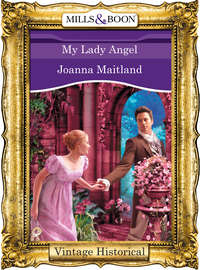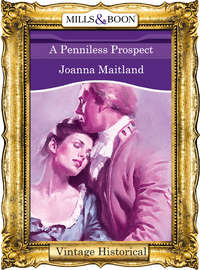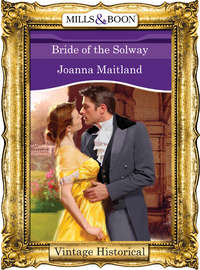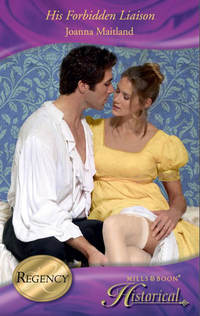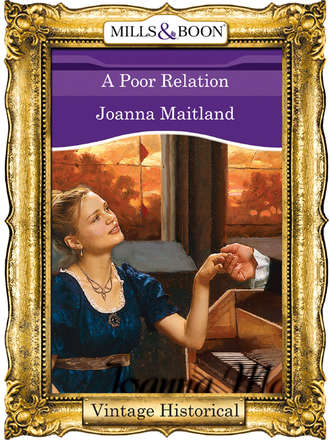
Полная версия
A Poor Relation
Isabella, too, was a little pale, but she despised such missish behaviour. Her keen intellect was busy searching for a solution to their dilemma. Mr Lewiston had not recognised her, she was certain. If she was careful both in her appearance and her behaviour, she could continue to dupe him. She could not afford to fail.
‘Do not distress yourself, Sophia,’ she said firmly, grasping Sophia’s shoulder and giving her a tiny shake. ‘He did not know me. Nor will he, if we are careful. I shall continue to act as though he and I had just met, and so shall you. If he should ask after your “companion”—though I dare swear he will not so lower himself—you will say that she is with her family.’
‘Oh, I could not,’ protested Sophia, trying to dry her tears with a scrap of lace. ‘I have not your talent for acting a part. Pray do not ask me to, Winny.’ Her voice was quavering; the tears threatened once more.
‘But I require you to,’ replied Isabella resolutely, giving Sophia a stern look, which stopped the gathering tears immediately. ‘Remember, Sophia—what I am asking you to say is no more than the exact truth. “Winny” is with her family.’ Isabella softened her gaze with a slight smile as she continued. ‘However, you must now cease to call me by that name. It would certainly betray us.’
They did not have much time to reflect on the possible horrors of the forthcoming visit from Mr Lewiston, because they were preoccupied with the preparations for Sophia’s first party—Lady Bridge’s soirée—that very evening. Although London was as yet quite thin of company, Isabella had judged it wise to allow Sophia to make some acquaintances at a few small gatherings, before launching her into her first grand occasion.
For this first party, Sophia chose the prettiest of the evening gowns she had brought from Yorkshire. None of Madame Florette’s creations could arrive for some days yet, however many seamstresses she might set to work on them. But Sophia’s home-made gown would by no means disgrace her, since she possessed real skill both in cutting and in stitching.
‘Thank you so much for lending me your pearls,’ said Sophia, as soon as she joined Isabella in the hall.
‘You look lovely,’ replied Isabella warmly. ‘Pink does indeed become you.’
‘While you look quite beautiful,’ responded Sophia promptly, casting admiring glances at Isabella’s classical gown of old-gold silk, and the necklace and earrings of intricate gold filigree. ‘You look like a princess from a fairy-tale.’
Secretly pleased, Isabella thanked her cousin demurely. ‘But you should not say such things, you know. At my age, I am more likely to be the wicked witch than the good fairy.’
‘Nonsense,’ chimed in an older voice. ‘You do yourself an injustice, as ever, Isabella. You look very well indeed, my dear.’
‘Oh, Aunt,’ protested Isabella. ‘How can I retain my countenance, if both of you put me to the blush?’
Lady Wycham ignored that protest completely. ‘Come, my dears, the carriage is waiting.’ The elderly lady, clad in imposing purple and leaning lightly on an ebony cane, led the way to the steps.
Barely ten minutes after their arrival, Sophia was chattering gaily with their host’s two nieces, while the hostess herself was seated by Lady Wycham, enjoying a comfortable coze.
‘Will you favour us with some music, my dear?’ asked Sir Thomas. ‘It is always a delight to hear you sing.’
Isabella inclined her head towards her host and moved to open the pianoforte. First she played a German minuet, its demure rhythm making little impact on the hum of conversation in the salon. Then she turned to a book of Italian songs, accompanying her low, rich singing voice with soft arpeggios. Almost as soon as she started to sing, the level of noise in the room fell, as the guests stopped to appreciate her beautiful voice. Sir Thomas watched her with a beatific smile on his face. Hardly anyone moved.
At the end of three songs, she made to leave the instrument but was met with a chorus of requests for an encore. She felt the warmth of a flush on her cheeks as she nodded her acquiescence. ‘Very well,’ she smiled, ‘but just one more.’ Her choice this time was completely different, a sad Italian ballad, which she sang very quietly, but with great expressiveness. The room remained totally hushed until the last note had died away, and then there was a burst of enthusiastic applause.
Isabella felt pleased; she knew she had performed well. She raised her eyes from her music to acknowledge the applause—and looked straight into the hard, dark eyes of Lord Amburley.
For a moment she sat immobile, stunned. How could this be happening? She felt her flush return and deepen under his gaze, while she strove both to regain her composure and to find an escape route from this nightmarish encounter. What could she do? It was so terribly difficult to order her thoughts with his penetrating gaze resting on her face. Had he recognised her, perhaps? Heavens, he was coming over to the pianoforte. She rose hurriedly in an attempt to avoid him, but it was too late. Sir Thomas was before her.
‘I think you cannot have met Amburley,’ began her affable host. ‘He has not been in town for some years. The wars, you know. He arrived a little late this evening but, luckily, in time to hear you sing. May I make him known to you?’
Isabella nodded dumbly, trying to recover control of her decidedly wobbly limbs. Her mind was still in a whirl. Foremost among her thoughts was the awful certainty that he could not possibly be the libertine she had earlier judged him to be. Rakes were not received by the upright Lady Bridge.
‘Miss Winstanley,’ continued Sir Thomas formally, turning slightly to be sure of including his lordship, ‘may I present Lord Amburley?’
‘Your servant, ma’am.’ His lordship had stopped by the far end of the instrument, Isabella noted, just near enough to avoid being impolite. He now bowed distantly to her, without moving forward to shake hands. ‘My compliments on your performance. You have a most…unusual voice.’ His voice was cool and expressionless, his manner stiff.
Curtsying politely, Isabella contrived a slight smile which did not reach her eyes. Inwardly, she was suddenly seething, her anger forcibly expelling her earlier weakness. She had been much too generous in her previous assessment of this man. Not a rake, perhaps, but both arrogant and overbearing in the extreme. She had received many compliments on her singing in the past, but a cold and patronising ‘unusual’ was certainly not one she would cherish. Better that he had refrained from voicing his evident disdain. Hateful, hateful man!
She would not allow him to overset her. Let him begin the polite conversation, if he dared. The spark of challenge was unmistakable as she raised her head proudly to look him in the eye.
If Lord Amburley observed that fiery spark, he gave no outward sign of recognition as far as Isabella could tell. Indeed, he seemed to be completely devoid of any human feeling—he just stood motionless by the pianoforte, surveying Isabella through half-closed lids.
Isabella refused to be cowed. Clearly his lordship did not desire to prolong their conversation. She certainly had no wish to do so. ‘If you will excuse me, gentlemen, I must rejoin Lady Wycham,’ she said politely, turning to leave. Sir Thomas nodded genially. Lord Amburley responded with only the slightest bow, keeping his hard eyes fixed on Isabella throughout. She could feel his gaze boring into her back, as she moved away to join her great-aunt once more, keeping her pace measured and deliberate. She might feel like running from him, but nothing—nothing—would be allowed to betray her inner weakness to such a man.
‘Why, Isabella,’ exclaimed Lady Wycham, ‘whatever is the matter? You look quite ill. Have you the headache, my dear? You really should not have agreed to perform for so long.’
‘I am quite well, truly. It is just a little warm with so many people in the room. I shall be recovered in a moment, I assure you.’ Taking a deep breath, Isabella raised her eyes to survey the company and discovered, with a sigh of relief, that Lord Amburley was no longer anywhere to be seen. A little of her colour returned.
But she had forgotten about Sophia, who was signalling urgently from across the room. Isabella swallowed a moment of panic. What should she tell Sophia? She reminded herself sternly that he had shown no sign of recognition—with luck he had completely forgotten his encounters with ‘Winny’.
Sophia drew Isabella into a shadowy alcove, desperate to know what had happened. ‘What did he say? Did he recognise you, do you think? Oh, what are we going to do?’
‘Be calm, Sophia,’ answered Isabella, doing her utmost to appear so herself. ‘There is no reason to be agitated, I am sure. Lord Amburley did not know me. We were introduced by Sir Thomas, that is all.’ She cut Sophia’s protest short, lest the child fret herself into an attack of the vapours. ‘He will, of course, recognise you when you meet, and you must acknowledge him, as you would any other gentleman. Remember that your “companion”—“Winny”—has gone to stay with her family. You may say, quite truthfully, that you are staying with your godmother and your distant cousin Isabella. Can you do that, do you think?’ She laid a gloved hand gently on Sophia’s arm.
‘I shall try,’ promised Sophia, looking pale and strained.
The inevitable meeting with Lord Amburley took place at supper, towards midnight, just when Isabella had begun to hope that he might have left. Isabella and Sophia were seated in the midst of the same group of young people they had joined earlier, and all were enjoying Lady Bridge’s generous hospitality.
Isabella felt, rather than saw, Lord Amburley’s entrance. Turning her head fractionally so that she could observe the doorway out of the corner of her eye, she saw that he was lounging near the door, apparently engrossed in discussion. She clenched her hands together in her lap to stop them from shaking.
Let him not notice us, she prayed silently, and if he does, I will not blush. Heavens, why cannot I have more self-control? What can it be about that man that oversets me so? He may be used to intimidating others, but I refuse to let him do so to me.
Trying to hide her confusion, she sipped gingerly at her champagne flute.
‘Miss Winstanley,’ said the well-remembered voice immediately behind her, ‘how delightful to meet you again—’ Isabella started and turned, only to find that he was clearly addressing Sophia, not herself ‘—I beg your pardon,’ he corrected himself, ‘I should have noticed that both Misses Winstanley were present. Miss Sophia, I hope you are well after your ordeal on the North Road? Are you fixed in London for the Season?’
Sophia answered with commendable self-possession that she was. A short, polite exchange ensued, after which Lord Amburley quickly withdrew. Sophia visibly relaxed.
Isabella noted that his lordship had not enquired after ‘Winny’, nor had he favoured her with any further conversation at all. She concluded that he had not given her another thought. Unaccountably, she felt piqued.
‘Lord Amburley is not much given to light conversation, it seems,’ she said softly to Sophia. ‘Perhaps that is just as well, in the circumstances.’
‘I am glad he is gone,’ confided Sophia. ‘There is something about his eyes that frightens me. I felt as if he could read my very thoughts.’
Isabella’s eyes widened in sudden recognition—for that was exactly how she had felt earlier, at the pianoforte. Then, she had not been able to put it into words. Now…now she had to admit that Lord Amburley would be a very dangerous man to cross.
Chapter Four
While society ladies were sleeping away the exertions of their late night, Lord Amburley was much occupied. He had never lost the soldier’s habit of rising early, though nowadays he used the time to exercise his horses rather than to inspect his troops. He revelled in the solitary beauty of the park and the freedom he enjoyed there in the early morning. Later in the day, there were always too many prying eyes for his comfort—the rigid etiquette of the ton sat very uneasily on the shoulders of the man of action that he had been.
It was a beautiful, late spring morning, but Amburley barely noticed the birdsong or the budding trees. The huge grey he rode seemed to be itching to gallop across the fresh, dewy grass but was held to a sedate walk by an iron hand. The horse tossed his head in protest.
Lord Amburley was still in Sir Thomas’s drawingroom, listening to a heart-stoppingly beautiful voice—and worrying at the riddle of the woman behind it. He had observed her closely while she sang. She was remarkably handsome—her glorious golden hair and her glowing complexion were a revelation to him. Only those unforgettable grey-green eyes confirmed her double identity—and her duplicity. She had been totally in control, too, until she caught sight of him. From then on, her agitation—and Miss Sophia’s—had been apparent, though she had masked it well in the supper room. A good actress, he supposed.
But what—in truth—was she? On the road, he had met a poor relation with a sharp tongue and more concern for poor Jonah than for polite behaviour. Now, she was transformed into a lady of the ton. One guise must be false, of course—and, remembering her guilty reactions of the previous evening, he knew which it must be.
None the less, he found he could not help admiring her. She had more than beauty—she had spirit. No shrinking violet she, in spite of what she was. And yet, her inexcusable behaviour must surely be condemned by any right-thinking man?
The grey shook his head again, more forcefully. ‘All right, old fellow. You’ve made your point. You think I’m good for nothing this morning, don’t you? Well, we’ll see about that.’ He let the horse have his head. The grey needed to shake the fidgets out of his legs. If only Amburley’s own concerns could be so simply resolved.
Around ten o’clock, while Lord Amburley was partaking of a light breakfast in his rented house in Jermyn Street, Mr Lewiston was announced. ‘Good God, George, you are up betimes,’ exclaimed his lordship, waving his friend to a chair. ‘I have not known you to emerge before noon, unless there was a prize-fight to attend. What brings you here at this hour?’
‘I have some news,’ replied Lewiston. ‘I must tell you that I encountered Miss Winstanley yesterday, quite by chance. You recall the young lady we rescued on the North Road? Well, it was she. And I have discovered her direction in London. Quite wonderful luck! I mean to call on her today. Will you accompany me?’
Lord Amburley did not immediately reply. ‘Did you, indeed? And was she still in looks?’
‘Indeed she was. She looked quite lovely. And so animated, more so than before, I fancy. I think that that dowdy companion we met up north had a malign influence on her. Miss Winstanley seemed in much brighter spirits without her louring presence.’
‘Miss Winstanley was alone?’ asked Lord Amburley sharply.
‘Of course not,’ snapped Mr Lewiston. ‘She was accompanied by a distant relation—a Miss Isabella Winstanley. She is much older than Miss Sophia and a perfectly proper chaperon. Though I should perhaps warn you that she is a most elegant female herself, not beautiful exactly, but certainly striking.’
Lord Amburley raised an eyebrow. Isabella Winstanley was much more than striking, surely? But that was not a subject for discussion with Lewiston. ‘And what has become of the poor companion? “Winny”, was it not?’
‘I have not the least notion. In any case, what has she to say to anything? You are not about to have another attack of philanthropy, are you, Leigh?’
‘No. Merely curious.’ Lord Amburley busied himself with the coffee-pot as he spoke. ‘Tell me about your encounter, including the distant cousin.’
‘There is little more to tell. Miss Winstanley— Miss Sophia Winstanley, I mean—almost collided with me outside Florette’s. We exchanged a few words. Miss Sophia introduced me to her companion, and then she told me she was staying with Lady Wycham in Hill Street. Lady Wycham is her godmother, you know.’
‘Well, no—in fact, I don’t know her ladyship, I’m afraid,’ responded his lordship flippantly.
‘Sometimes, Leigh, you are quite exasperating. I did not expect you to know Lady Wycham, dammit; I was simply explaining how things are. If you’d just let me finish…’
‘Oh. Is there more?’ His lordship sat back, calmly drinking his coffee.
Lewiston continued doggedly. ‘Kenley has told me all about the Misses Winstanley. Your man Peveridge was right about her being an heiress. Apparently Lady Wycham is very well-to-do, and Miss Winstanley is her nearest relative. She is expected to inherit everything. I dare say she will be the catch of the Season—beauty, breeding and a fortune into the bargain.’
‘With Kenley involved, she will certainly become the centre of attraction—he is a gossip-monger of the first order. I have never understood why he spoils his own chances of winning heiresses by spreading the news all over London. After all, everyone knows he’s mortgaged to the hilt. But you mean to be first in line yourself, I collect?’
Lewiston glowered in response. ‘I have no need of her fortune, as you know perfectly well. I mean only to further my acquaintance with her and, perhaps, to warn her about some of those who may have mercenary motives.’
This was serious, Amburley realised. And there was an edge in Lewiston’s tone that suggested… ‘I trust you do not include me in that category, do you, George?’
Lewiston laughed. ‘Why, no, of course not. I know you are not hanging out after an heiress for a wife…or indeed any wife at all, as far as I can see. And even if you were, I doubt you would choose someone of Miss Winstanley’s tender years. The cousin, now, might be more to your liking. I’d say she is past five-and-twenty, but she is very well-looking, none the less. I gather she is a poor relation of some kind, though, and totally dependent on Lady Wycham’s generosity, so you couldn’t really afford to—’ Lewiston broke off at Amburley’s dark frown. ‘What is the matter, Leigh?’
‘I will thank you not to interfere in my private affairs, George. I know you mean well… However, what is important at present is that I prevent you from making a complete ass of yourself in this case.’ Lewiston gave an audible gasp. ‘As I said, an ass,’ repeated his lordship. ‘You clearly did not look closely at Miss Isabella Winstanley. If you had, you would have recognised the “malign” companion of our earlier encounter.’ Lewiston now looked as if he had received a blow in the solar plexus.
‘I chanced to meet both ladies at Lady Bridge’s soirée last night,’ continued Lord Amburley evenly. ‘Miss “Winny” is attempting to pass herself off as a lady of fortune, no doubt in the hope of catching a husband. Your Miss Sophia, probably abetted by Lady Wycham, has clearly put quite some investment into her companion’s appearance, for she appeared as a very fine lady indeed. Miss “Winny’s” manners are irreproachable, of course, but then that is often the last resort of the impoverished. It’s a pity she is indulging in such a shameful masquerade. She would have been better to take honest employment as a governess. She is certainly well qualified for that. She plays and sings delightfully.’
Lewiston put his cup down with a clatter. ‘I don’t believe it,’ he gasped.
‘What other explanation can you offer?’ countered his lordship grimly. ‘We both met Miss “Winny”. There can be no doubt of her lowly station in life. Unless I am mistaken in my identification of her as Miss Isabella—and I assure you I am not—there can be no other explanation. Your Miss Sophia is not only rich, frivolous and spoilt, she is also prepared to perpetrate a disreputable fraud upon you and other unsuspecting gentlemen of the ton. I have to say I am not surprised. Heiresses tend to have little regard for morality.’
He rose from the table and strode to the window, frowning out on to the busy street. ‘I see that you doubt me. It is understandable, perhaps, that you think my judgement has been swayed by my own experience of society ladies. However, once you have paid your respects in Hill Street and looked upon Miss Isabella Winstanley with new eyes, you will doubt no longer, I promise you.’
‘I am sure you are wrong, Amburley,’ said Lewiston coldly, making to rise from his chair, ‘and I shall take pleasure in telling you so, as soon as I may. Such a delightful and well-bred girl as Miss Sophia would never be party to so base a deception. It is not possible.’
‘As you wish,’ replied Amburley calmly. ‘But since my opinion cannot be put to the test for some hours yet, let us turn to happier pursuits. I was intending to take a turn in the ring at Jackson’s parlour this morning. Will you join me? It might improve your temper to plant me a facer.’
‘No doubt it would, if I could do it,’ admitted Lewiston, forced into unwilling laughter, ‘but I know very well that I cannot. You are much too skilled for me, and I prefer not to suffer your left again, thank you. I will gladly accompany you, though.’
Good humour temporarily restored, they left for Gentleman Jackson’s boxing parlour.
Although Mr Lewiston’s dress was the height of fashion and his coat owed its immaculate fit to the artistry of Weston, he nevertheless looked nothing out of the common way by comparison with the tall and imposing figure of Lord Amburley at his side. Mr Lewiston kept fingering his cravat—a mathematical that he had laboured over for nearly two hours. It felt too tight. ‘I think, perhaps, we should not go in, Leigh,’ he suggested, tugging at it yet again.
‘Do you tell me you do not care to catch Miss Sophia in her outrageous behaviour, George?’
‘What? Oh, heavens, no! This cravat of mine. It’s not, I fear, quite what I should like. Perhaps I should—’ At that moment, the great door swung open to reveal the uncompromising stare of Lady Wycham’s butler. Retreat became impossible.
Lady Wycham greeted them amicably from her place on the sofa in the blue drawing-room. ‘Sophia has told me all about your gallant rescue, Mr Lewiston. Believe me, we are most grateful to you both.’
‘It was nothing out of the ordinary, ma’am, I assure you.’ Mr Lewiston blushed. ‘I was glad to be of service,’ he added with a smile for Sophia, sitting beside Lady Wycham.
The elder Miss Winstanley was seated on the other side of the room, entertaining another guest. Mr Lewiston could hear her voice fairly clearly, but was unable to study her face without turning round. Surely this voice was different—lighter, younger?
After a few minutes, Lady Wycham asked Sophia to present Mr Lewiston to those other callers with whom he was unacquainted. ‘Forgive me if I do not rise to make the introductions myself, sir. I am afraid I am no longer as spry as I once was.’ While Lord Amburley, looking faintly amused, remained in conversation with Lady Wycham, Mr Lewiston accompanied Sophia to the window where Sophia performed the introductions, first to Miss Isabella Winstanley, with the reminder that they were ‘distant cousins, you will recall’, and then to the Earl of Gradely, who bowed and left.
Mr Lewiston appraised Miss Winstanley with some care. She was the same height, pretty much, he admitted, but ‘Winny’ had been thin, while this lady, though slim, was elegantly formed. No. Amburley must be wrong.
‘Is this your first visit to London, Mr Lewiston?’ enquired Isabella, looking into his face and determined to maintain the bright, youthful character that had successfully deceived him so far.
He did not immediately reply. For a moment, Isabella fancied his mind was elsewhere. She hastened to fill the silence. ‘Have you visited Westminster Abbey since you arrived in London, sir?’ she said quickly. ‘I assure you it is a magnificent edifice and repays a journey. Sophia and I attended divine service there on Sunday last. It was truly moving. The music in particular was most beautiful.’
Mr Lewiston looked suddenly nonplussed. He stammered a little as he made to answer Isabella. Then he paused for a moment, as if trying to collect his wits, before finally responding to Isabella’s inconsequential conversation in much the same vein. When Lord Amburley strolled over to join them, some minutes later, the conversation was still centred on such delights of London as might properly be discussed before ladies.



